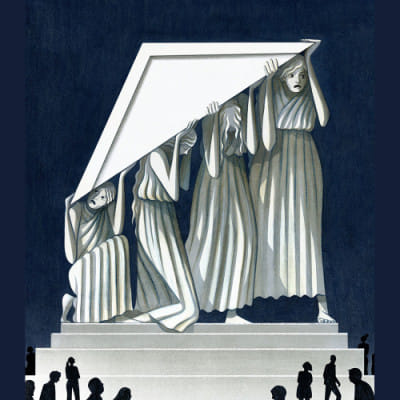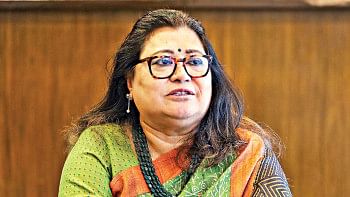Is democracy at risk?

We are living in a world which has been primarily shaped by a number of democratic countries over the last 70-plus years, following WWII, in which economic institutions have promoted movements of goods, services, investments, people, idea and technology from one end to the other, leading to mutual prosperity. The system worked and we have achieved remarkable economic growth through which hundreds of millions of people have been pulled out of poverty in many different countries. The trajectory of other social indices, for example, under five mortality rate, literacy rate, maternal health, female empowerment and so on, are also on the rise.
In the 1970s, there were about 30-35 democratic countries that rose to 115-120 by the start of the 21st century, depending on the degree of democracy they practice. A US NGO named Freedom House has measured a decline in democracy and freedom worldwide. It posed a serious question: Does the fact of elections, even where the outcome is autocratically determined, qualify a country to be considered a democracy? It is a really hard question to answer. But it may be said that there are now about 25 fewer democratic countries than there were at the start of the millennium.
It looks like liberal democracy is receding across the globe. If we look at the current trend in the world politics, it seems to be shifting from an axis that had been defined between a left and a right, which ideologically disagreed essentially over economic issues. The left always wanted more equality, more social protection and a stronger state that could provide more services and redistribution to citizens. The right wanted more economic freedom; they liked capitalism and markets and wanted more socially conservative values. That was the basic dichotomy in much of the 20th century politics.
Russia and China are more autocratic than ever before, advancing with unstoppable pace. Even during the pandemic, China did not suffer economically nearly as much as the world's democracies. It has an advantage that it is one of the most regimented nations on earth and therefore is able to implement its plans effectively.
In a globalised world, mutual trading benefits all, but when people start crossing with goods legally or illegally, they tend to challenge the lives, entities and customs of the host countries. Due to these factors, people voted for Brexit in the UK and for Donald Trump as the 45th US President. Today, with the rise of leaders like President Erdogan in Turkey, Prime Minister Orban in Hungary, Modi in India, Mateusz Jakub Morawiecki of law and justice party in Poland, we are now living in a world which is defined not by the traditional left-right spectrum, but by identity.
In November 2018, prior to the midterm election, while delivering a speech, Donald Trump was advised by the traditional republicans to say that unemployment is very low, the economy is growing, everybody has a job because of tax cuts and deregulations. Instead, Trump went on to criticise the migrants approaching the southern border. He even deployed the army to defend America against the migrant invasion.
There are different varieties of populist leaders. The first kind are those who advocate economic or social policies that feels good in the short term but are unsustainable in the long run. For example, the late Hugo Chavez of Venezuela, who was providing free eye clinic, subsidised groceries and gasoline, all of which was dependent on high oil prices. Once the price of oil fell in 2014, his regime started to collapse.
The second kind is something to do with the style of politics. Populist leaders tend to be charismatic, that is to say they claim to have direct relationship with the people they claim to represent. Their charisma is represented in the person rather than through institutions. In fact, most populist politicians don't like institutions. They instead seek to do whatever they can to undermine institutions. Institutions like rule of law, free media, impartial bureaucracy—all these stand in the way of populist leaders in accomplishing their purposes.
And the last kind of populist leaders are those who represent the people, but often, not all the people. They value certain ethnic groups or traditional ethnic groups more than others. A contemporary example could be Prime Minister Modi of India, which is an incredibly diverse country in terms of religion, language, caste and geographic region. But under Modi, Hindu nationalism again took root in India, disregarding people from other faiths. This has also been reflected by the way his government tried to enact the Citizenship Amendment Act (CAA) and National Register of Citizens (NRC). Prime Minister Victor Orban of Hungary is another who clearly said that the Hungarian national identity is based on Hungarian ethnicity. The danger of this type of populism is fairly evident as they destroy liberal democracy and the liberal international order.
We saw how the US played a much wider role following WWII. That included global leadership, promotion of the liberal international order, freedom, democracy, and human rights, and preventing the rise of regional hegemons in Eurasia. It's therefore understandable that in a unipolar world, US policy made an even deeper impact. Sadly, when countries tried to deal with global issues like the refugee problem using the so-called ultra-nationalist rhetoric particularly in several European countries, it didn't work out well. If we look at the US, it is the lower and middle-income, less educated people, who felt that their lives and jobs were threatened by immigrants.
Since 1970, Asia's per-capita incomes have increased fivefold, the asset value of the world's leading billionaires has risen fivefold since 1988 and following China's WTO accession in 2001, US's trade deficit with China alone went up by almost fivefold. These issues, with all of the above combined, largely influenced the rise of populist politics. It is time that democratic leaders across the globe redefine their politics so as to address the global issues for human wellbeing and unity, not just for meeting greed an the last for power.
Maj Gen Md Sarwar Hossain, BSP, SGP, ndc, hdmc, psc (Retd) is the former Military Secretary to the President.

 For all latest news, follow The Daily Star's Google News channel.
For all latest news, follow The Daily Star's Google News channel. 



Comments